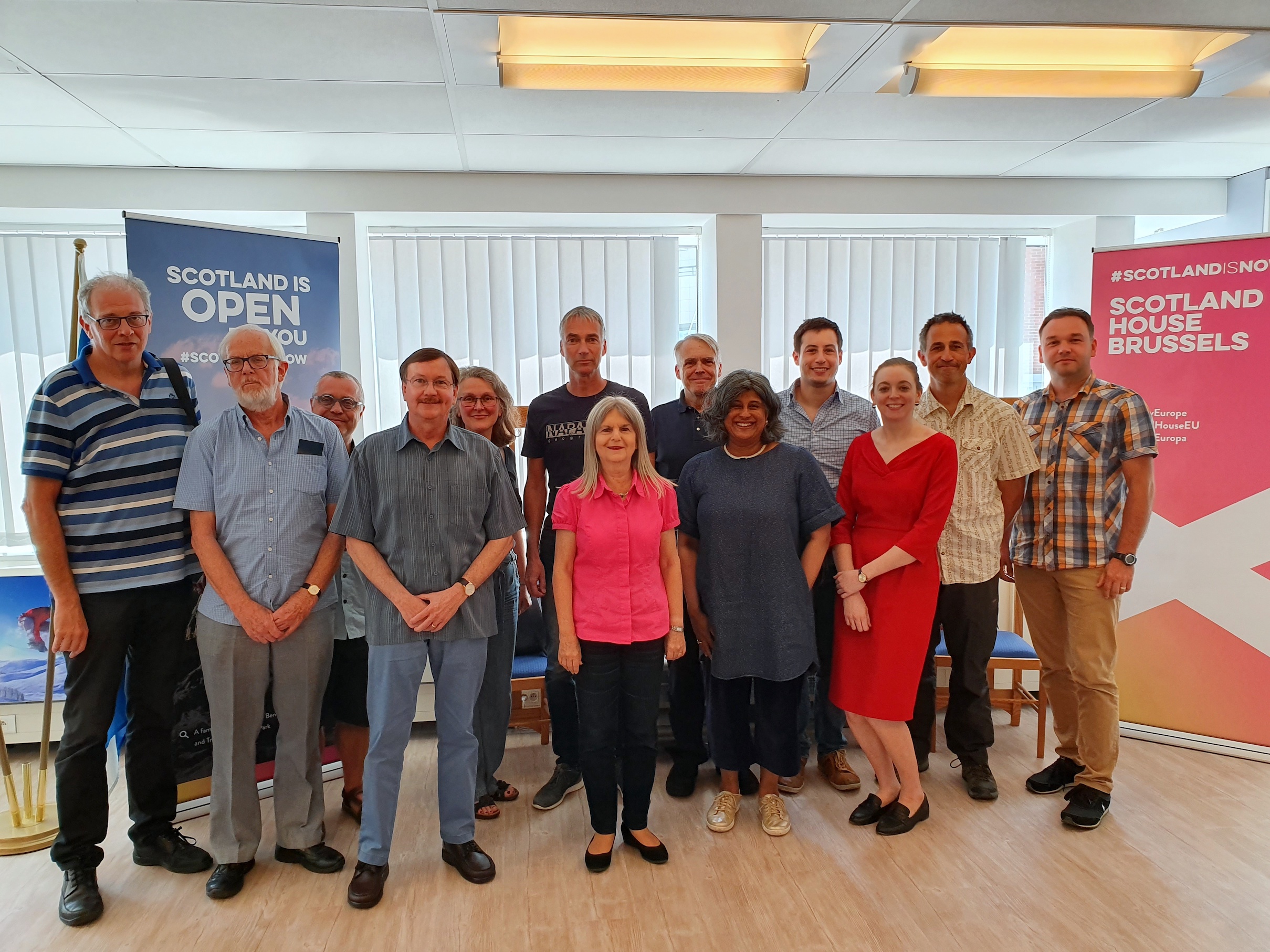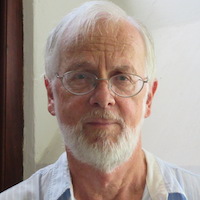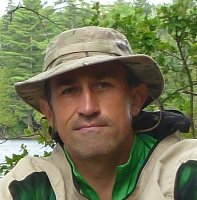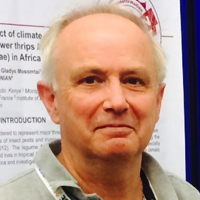Professor Shireen Davies
University of Glasgow



Final nEUROSTRESSPEP consortium meeting with the Commission, Brussels, July 2019

Professor Shireen Davies
Professor of Integrative Cell Signalling
University of Glasgow
I am interested in how organisms tolerate and survive environmental stress, and so use the model insect Drosophila melanogaster to understand this process from the molecular level to whole organisms and species. In particular, we seek to understand the key roles of peptide hormones (neuropeptides) in stress survival to apply this to insect pests. My research is supported by the UK Biotechnology and Biological Sciences Research Council (including a previous David Phillips Fellowship and a current industry exchange award) and by industry. Coordinating multiple parallel funded research programmes and other aspects of a senior academic position has provided some relevant experience as Coordinator for the nEUROSTRESSPEP programme. I have specific responsibility for Work Package 6 (Management) together with our excellent project management team, project manager Selin Campbell and administrator, Linda Atkinson. I also have active research and dissemination input across the programme including Work Packages 1, 2, 4 and 7.

Professor Luke Alphey
Group Leader
The Pirbright Institute
I am engaged in developing new, safe, effective, environmentally-friendly methods for controlling pest insects. While at the University of Oxford I developed a method based on the use of engineered “genetically sterile” male insects. In 2002 I co-founded a biotechnology company, Oxitec Ltd, to realise the potential beneficial impact of this invention. I led the company as Chief Scientist until Feb 2014; during this time Oxitec achieved many scientific and commercial successes, including the successful completion of the world’s first field trials of genetically modified insects. In February 2014 I moved to The Pirbright Institute to develop next-generation genetic pest management methods. The role of my research group in nEUROSTRESSPEP is part of this programme – we aim to explore the potential for neuropeptides to control key insect behaviours and traits such as fitness, mating, feeding and overwintering.

Professor Miriam Altstein
Head of Neurochemistry lab
Agricultural Research Organization
I am a highly experienced neurochemist working on various aspects of vertebrate and invertebrate neuropeptides for over 35 years. My main topic of research focuses on the exploitation of neuroendocrine regulation in insects (mainly moths) and the use of insect neuropeptides as a target for pest management. I have a long lasting experience in neuroendocrinology covering all aspects of neuropeptide activity and the studies of my group span from the whole organism down to the molecular and cellular levels. In the past 20 years our studies focused on development of a rational design platform approach for conversion of active insect neuropeptides into antagonistic inhibitory, stable, bioavailable and highly potent insect control agent prototypes. In the nUROSTRESS EU project I am the leader of WP-4 which intends to examine ours as well as other group antagonists for their bioactivity, bioavailability and stability toward identification of efficient environment friendly insect control agents.

Dr. Michael Becker
Bruker Daltonics GmBH
Dr. Michael Becker is a Bruker mass spectrometry applications specialist with an emphasis on neurobiology, proteomics, mass spectrometry imaging and bioinformatics. The advancement of technologies for obtaining data on insect neuropeptidomes, metabolomes, pathways and their subsequent alterations following environmental effects such as insecticide exposure are his particular interests in the scope of nEUROSTRESSPEP, forming parts of WP1 and WP2 in collaboration with other project partners. Bruker is a leading global analytical instrumentation company, having developed state of the art technologies for over 50 years, with particular specialization in the innovation of mass spectrometry systems for molecular investigations in academic, pharmaceutical, industrial and applied areas. Commitment to technological development for the investigation of pesticide monitoring as well as environmental sustainability are strategic interests of Bruker Corp.

Dr. Jayne Brookman
Head of Food
KTN
I am interested in commercialisation and deployment of research outputs for financial and societal gain. I work for the knowledge transfer network (KTN) linking research and technology providers with end-users and research or commercialisation partners. I have a varied background, lecturing in biotechnology at Manchester University before spinning out a drug discovery company, F2G. I ran a strategic business consultancy before joining the KTN in 2007. The KTN are providing input into WP3 providing market needs and feedback for the product design process. We are also managing WP7 providing a lead on communications, IP management within the group and delivering the dissemination activities for the nEUROSTRESSTEP project over the next four years.

Professor Julian Dow
Professor of Molecular and Integrative Physiology
University of Glasgow
My degrees are in Zoology from the University of Cambridge, and my research interests are in insect physiology, molecular genetics and functional genomics, particularly using Drosophila melanogaster as a convenient genetic model. My lab established the Drosophila renal tubule as a model system, and is perhaps best known for the flyatlas.org online expression resource. I shall be leading WP1, and an active participant in WP2.

Professor Gerd Gäde
Emeritus Professor
University of Cape Town
My interest lies in research that centers around an important hormone which is involved in intermediary lipid, carbohydrate and proline metabolism in insects, and its cognate receptor. Purification, sequence identification, metabolic function of these adipokinetic hormones and structure activity studies in vivo and interaction with the receptor are my main study areas. I have studied biological and partially chemical sciences and have worked my entire life in tertiary academic institutions in Germany, The Netherlands and South Africa, lecturing and doing benchwork Research. My expertise is used in a couple of work packages, mostly in co-operation with the Group in Leuven.

Dr. Daegan Inward
Research Entomologist
Forest Research
Forest Research is the Forestry Commission’s research agency. As the principal organisation for forestry and tree related research in the UK, we provide evidence and scientific services in support of sustainable forestry. Our applied research upon forest pests and diseases is committed to protecting and promoting forest health. My background is in insect molecular systematics and evolutionary ecology; my research now focuses on the ecology and management of wood & bark boring insects. I have a particular interest in invasive beetles and novel forest pests. Other project areas explore insect interactions with forest pathogens, and the impact of climate change upon the pest status of the most economically important pests. Our detailed work on the life cycles of some of these pests, and our wider experience in forest trials, will be utilised in this project to take the work of the consortium from the laboratory to the field, and to address end-user needs in the forestry sector.

Professor Elwyn Isaac
Professor of Comparative Biochemistry
University of Leeds
After working on the biochemistry of insect steroid hormones (ecdysteroids) that control moulting with Huw Rees at Liverpool University, I moved to Leeds University and became interested in the role of peptide hormones in controlling the behaviour and the sex-life of insects. I am particularly interested in understanding the various physiological roles of neuropeptide-degrading peptidases in regulating the biologically activity of these peptides. The study of these peptidases is important not only as potential targets for new insect control chemicals, but also for the development of metabolically stable peptide mimetics as insecticides. These are core objectives of the nEUROSTRESSPEP project over the next four years.

Dr. Neil Morrison
Senior Scientist
Oxitec Ltd.
I lead research programmes using genetics for environmentally sustainable control of pest insects, all the way from early lab-stage research to field trialling our products. Oxitec is an award-winning pioneer of effective and environmentally friendly ways to control insect pests that damage crops and spread disease. The approach is toxin-free and by engineering insects to reduce pest populations of the same species, we can help reduce reliance on insecticides so that beneficial insects like bees can thrive.

Professor Dick Nässel
Professor of Functional Zoomorphology
Stockholm University
I am interested in the roles of signaling with neuropeptides and peptide hormones in regulation of environmental stress responses, in life history traits, as well as in processes in brain and behavioral senescence. My present position, since 1988, is as full professor in Zoology at Stockholm University. I have a background in insect neuroscience and neuroendocrinology with a PhD in Zoology, and head a group of PhD students and postdocs working on insulin signaling and reproductive dormancy and their roles in development and aging of the fly Drosophila. In the nEUROSTRESSPEP project (especially WP2) we will investigate selected neuropeptides and their receptors in stress responses, using the genetically tractable Drosophila as a model.

Dr. Jon Pickup
Head of Virology & Zoology
SASA, Scottish Government
SASA is interested in the application of knowledge gained from research into insect neuroendocrinology through the development of environmentally benign insecticides. As part of the Scottish Government, SASA advises on the control of insects in outbreak situations, i.e. when non-native plant pests are introduced into either commercial production systems or into the natural environment. Conventional insect control methods can be very damaging to non-target species within the native fauna and are often unsuccessful in eradicating the outbreak. Delivering more effective and environmentally acceptable alternative methods of insect control are close to the strategic objectives of the Scottish Government, in particular being “smarter” and “greener”. SASA will be involved in providing background information on target pest species for WP2 and WP3 and in small scale field testing under WP5. SASA will be involved in the dissemination of the outputs of the nEUROSTRESSPEP project through our contacts with policy makers and the agricultural and horticultural industries (WP7).

Professor Reinhard Predel
Professor of Functional Peptidomics
University of Cologne
I am interested in the evolution of peptidergic signaling systems; the emphasis is on neuropeptides from the nervous system of invertebrates. In this context a specific focus is on the development and utilisation of methods for mass spectrometric-based peptide profiling in identified neurons and the analysis of dynamics of cell-to-cell communication. We are also developing methods for the typology of arthropod populations using taxon-specific neuropeptide patterns. Within WP1, we validate expected and identify novel neuropeptides in different pest insects. For high throughput screenings of species-specific peptidomes we are currently improving methodologies and protocols. These methods will be later used within WP3 to study changes in peptide profiles following treatment with e.g. insecticides (stress response).

Professor Guy Smagghe
Professor at Ghent University
University of Ghent
My degrees are in agricultural sciences, and my research interests are in insect physiology, biochemistry and toxicology. My lab has a long tradition of >20 years in fundamental basic and applied research in insects, particularly using different pest insects as caterpillars, beetles and aphids, and also beneficial insects as natural enemies and pollinators. We investigate the toxicology and mode of action of new insecticidal compounds and tactics in pest control, and our ambitions focus to sustainability and innovations in crop protection within our modern agriculture. We have ample expertise with setting up and developing different insect (eco)toxicity tests, cell and protein receptor/enzyme assays, RNAi assays, and molecular biology/bioinformatic analyses. I will lead WP5 and be participant in WP2-7.

Professor Jozef Vanden Broeck
Full Professor
University of Leuven (KU Leuven)
Our main research interest is to study the physiological role and biochemical/biophysical mode of action of neural and endocrine messenger molecules in post-embryonic developmental processes of insects. In particular, we are specialized in the study of receptors for neuropeptides and biogenic amines and their cellular signal transduction pathways. We have also a growing interest in the role of regulatory RNA pathways and the mechanisms of systemic RNA interference in insects. In addition, translational research is carried out towards the development of practical applications/solutions. Within the nEUROSTRESSPEP consortium, KU Leuven functions as the workpackage leader for WP3 (prioritization of candidates) and as partner (task 2). We are experimentally involved mainly in WP2 (functional characterization studies; particularly tasks 1, 2 and 4) and WP4 (validation studies; particularly tasks 2 and 4). As partner of the consortium and member of the Executive Board, we also take part in WP6 and WP7.